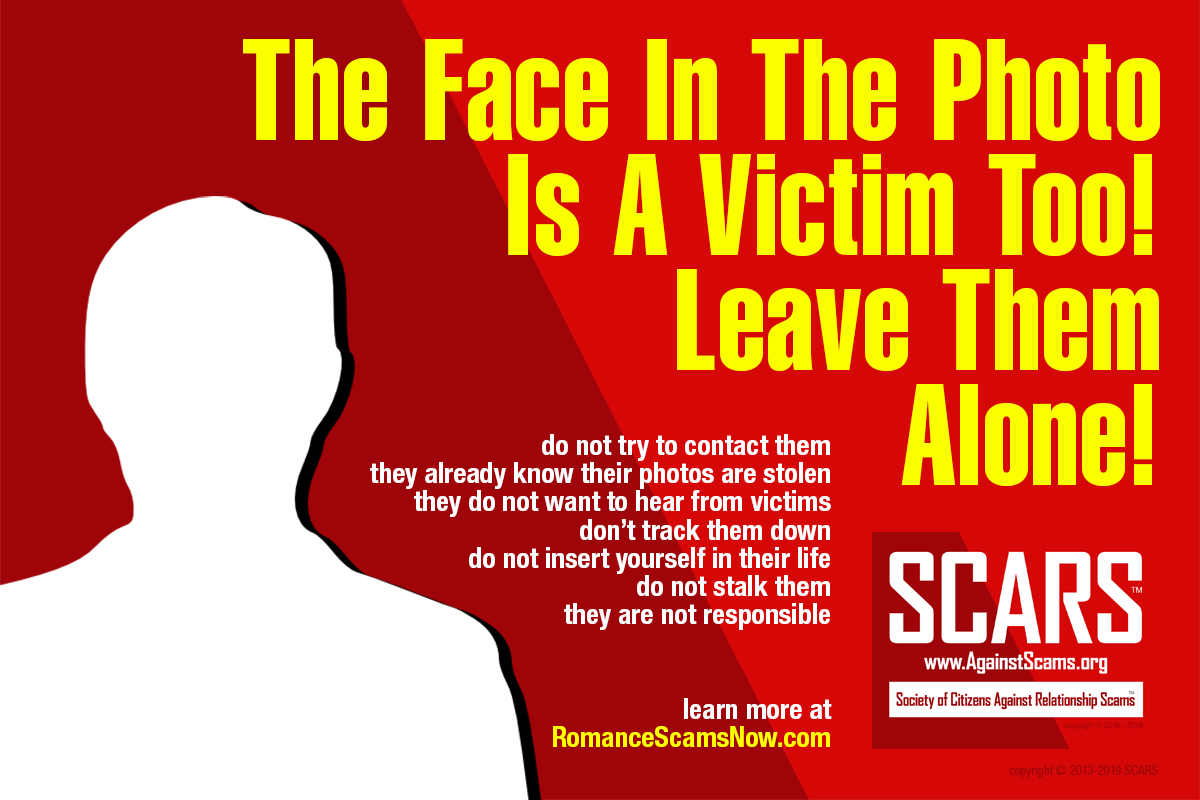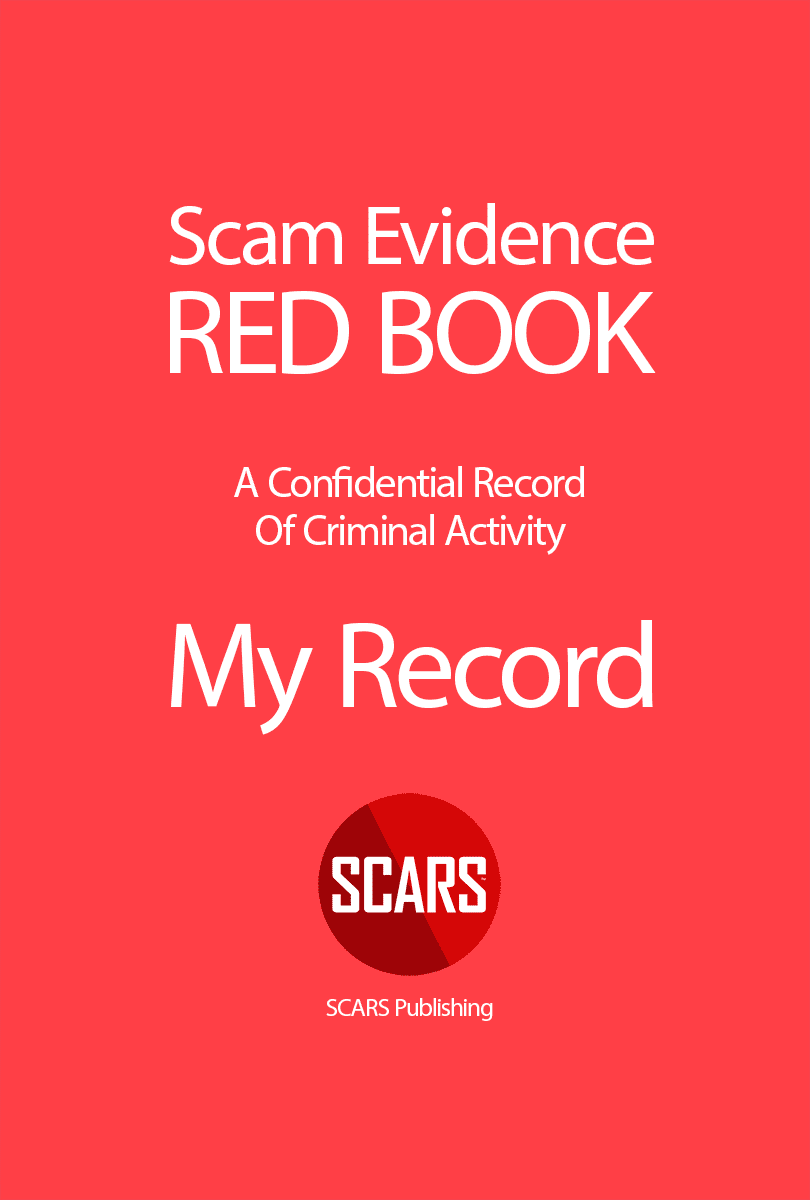American Adult Stars Do Not Live In Ghana
Every Day We Are Contacted By Men And Women Who Have The Unshaking Belief That The Face In The Photo Was The Actual Person That Scammed Them
It doesn’t matter if it was a soldier, a businessman, or an adult star, they believe it – they just know it!
AND THEY ARE ANGRY AND WANT REVENGE!
We are sorry if this offends you, but we do know you are a victim, but you are not always correct in what you believe. We have an obligation to help you learn the facts. If this is offensive, then you will need to look very carefully at your situation because this is very likely to prevent you from recovering from your scam. However, not all scams are the same, and this is a generalization since almost all romance scams fit this model.
Every Day
Every day we explain that these are stolen photos being used by scammers. Scammers have created hundreds of millions of fake identities using stolen photos, and adult stars and cam girls are easy targets. Yet in some cases, this takes on the qualities of mania, of obsession. It is an irrational belief in the infallibility of the victim.
As the article below suggests, it is astounding that none of the people whose photos have been stolen have been physically hurt by their victim-stalkers and accusers. At some point, it is likely to happen since some of them (especially men) are enraged – angry far beyond the rational.
Here is an incredible article by The DailyBeast the exemplifies these very points.
Visit our Dani Daniels page for more photos »
The Curious Case of the Adult Star Catfishers Use to Scam People Online
By Tarpley Hitt
Kira Lee Orsag, better known as porn star Dani Daniels, has her identity stolen every day. Catfishers from around the world use her photos to con fans out of thousands of dollars.
Around Christmastime of 2017, a woman named Kira Lee Orsag, better known as the adult actress “Dani Daniels,” was tending bar—or “star-tending”—at a D.C. strip clubcalled Archibald’s, when a man approached her and thrust his cellphone in her face. The guy was white and on the older side—probably in his early 60’s—with cropped grey hair, average stature and a middle-aged paunch. On his phone, the man had pulled up a photo of Orsag, standing in her own apartment back in New York City. “Who is this?” he asked, accusingly.
“And she tells him: ‘That’s me,’” Orsag’s husband, Victor Cipolla, recounted to The Daily Beast. (Cipolla was also at the bar that night, and does most of his wife’s publicity). “And he’s like, ‘No. It’s your twin sister, and she’s stuck in Ghana. You have to save her.’”
The incident was not unusual for Orsag. Scammers have been using her pictures and making fake social media accounts in her name for years, mostly to con lonely fans out of money. According to Cipolla, Orsag reports a dozen fake Instagram accounts a week for impersonating her online, and responds daily to messages from concerned followers who believe she is trapped in Ghana, in need of sympathy, rescue, and—most importantly—cash.
No, she told the man at Archibald’s, she has no sister (Orsag is an only child). Whomever he had been talking to, she said, it was not her. The man holstered his phone and left the bar quickly.
Catfishing and online identity theft are widespread problems for stars of the adult film industry, who can be famous enough to have millions of followers—followers who often feel they have deep, even intimate relationships with the stars—but are rarely mainstream enough to benefit from the usual precautions against copycat accounts, like verification.
It’s more difficult for adult actresses to have their accounts verified, Cipolla told The Daily Beast, because of the sexual nature of their content, which often gets reported on platforms like Instagram for violating community guidelines. (The Daily Beast could not confirm any policy regarding verifying adult accounts with Instagram). That vulnerability to guideline violations also makes adult actresses more vulnerable to catfishers, Cipolla said.
“Here’s how these guys work,” he told The Daily Beast. “They’re literally brilliant. They will report these profiles for showing too much skin—especially unverified adult film stars—get [the accounts] taken down, and then pretend that they’re the real adult film star now, with a real profile, and without the actual person being able to refute it. They have carte blanche to be able to screw people over.”
Often, adult actresses with unverified accounts resort to makeshift methods of affirming their own authenticity. A porn actress who performs under the name “Katrina Jade,” for example, has 1.1 million Instagram followers, but is not verified. Instead, she uses the handle @officialkatrinajade and posted a photo of just text that reads “This is my only Instagram page period / All others are frauds / Verify this in my highlighted bio video.”
Until the incident at Archibald’s, Orsag’s social media accounts had also been unverified. But after that night, Orsag realized that what had seemed like a nuisance could have dangerous real-world consequences.
“This guy showed up with a phone,” Cipolla said. “But what if next time he shows up with a gun?”
The couple began taking a more aggressive approach to Orsag’s online imitators. “We went through all kinds of hoops throughout the last year to get her a verified Facebook fanpage, a verified Twitter, and a verified Instagram account,” Cipolla said. But even blue check marks did not seem to have much impact on the catfish attacks. “It has not slowed it down,” Cipolla said. “It seems to be speeding it up”—in fact, it’s now reached a climax, embroiling the star in a double lawsuit.
In June of 2018, the couple received a legal complaint from a man named James R. Weidenborner, a 56-year-old Uber driver from Waterbury, Connecticut. Weidenborner claimed that “Dani Daniels” had scammed him out of $1,795 by pretending to be stranded in Ghana. He had tracked the real porn star down in New York City, and was taking her to Small Claims Court. (Weidenborner did not respond to requests for comment).
The complaint was disconcerting for several reasons. On the one hand, Weidenborner was clearly confused—he had filed the complaint against Dani Daniels, a person who doesn’t technically exist; it’s just Orsag’s fake name for her performer persona. “She feels bad that people are attempting to scam her fans,” Cipolla said. “These guys don’t deserve to have their life savings taken from them.” But on the other, Orsag alleged she had never met Weidenborner, never spoken to him, and never asked for money.
They went to court, but the case quickly seemed suspicious to Cipolla and Orsag. “Basically, there is no way [Weidenborner] couldn’t have already figured out that [the scammer] wasn’t her,” Cipolla told The Daily Beast. “If you Google ‘Ghana romance scam Dani Daniels,’ you will see a boatload of people talking about how somebody tried to use her pictures to scam them.” Besides, Cipolla noted, Weidenborner had done enough research to find their business address.
Yesterday, the couple filed a countersuit against Weidenborner, alleging that he had used the suit to “try and force a mediation which would have given him direct interaction with one of the objects of his obsessions,” according to an excerpt of the complaint published in the New York Post.
This afternoon, in a hearing to merge the two lawsuits, Weidenborner did not appear, sending a notarized letter instead, which announced his intention to drop the case. Cipolla and Orsag, however, did not drop their suit. They see the case as a stronger way to take action against catfishers.
“This isn’t just some fluffy, gooey story about an Uber driver falling in love with a porn star,” Cipolla said. “It’s part of a systemic, horrible scam that could lead to someone getting hurt.”
The problem with using the names and pictures of real people to catfish, Cipolla said, is that when scam victims are looking for someone to blame, they have an easy target.
“Mark Twain said that it’s easier to fool a man than to convince him he was fooled,” Cipolla told The Daily Beast. “Once these guys figure out they’ve been scammed, they’re not going to blame themselves. They are not going to go to Ghana. They’re going to go after my wife.”
Extracted from: https://www.thedailybeast.com
Read The Source Article: https://www.thedailybeast.com/the-curious-case-of-the-porn-star-catfishers-use-to-scam-people-online
Original Copyright Acknowledge
Summary
Please take the time to really learn how scams work and do not listen to amateurs. Truly understanding scams is vital to your mental health and to your recovery. We have thousands of articles on the subject, right here on this website to help you. Take advantage of them.
-/ 30 /-
What do you think about this?
Please share your thoughts in a comment below!
To Learn More Also Look At Our Article Catalogs
Scam & Crime Types
More SCARS
- ScamsNOW Magazine – ScamsNOW.com
- ContraEstafas.org
- ScammerPhotos.com
- AnyScam.com – reporting
- AgainstScams.org – SCARS Corporate Website
- SCARS YouTube Video Channel



![The Story Of Kira Lee Orsag (aka Dani Daniels) [Updated] 1](https://romancescamsnow.com/wp-content/uploads/2018/09/Dani-Daniels-8-800x800.jpg)
![The Story Of Kira Lee Orsag (aka Dani Daniels) [Updated] 2](https://romancescamsnow.com/wp-content/uploads/2018/09/Dani-Daniels-1-350x280.jpg)
![The Story Of Kira Lee Orsag (aka Dani Daniels) [Updated] 3](https://romancescamsnow.com/wp-content/uploads/2018/09/Dani-Daniels-6.jpg)
![The Story Of Kira Lee Orsag (aka Dani Daniels) [Updated] 4](https://romancescamsnow.com/wp-content/uploads/2018/09/Dani-Daniels-10.jpg)



![The Story Of Kira Lee Orsag (aka Dani Daniels) [Updated] 5](https://romancescamsnow.com/wp-content/uploads/2021/03/you-have-to-be-smarter-than-scammers.png)
![The Story Of Kira Lee Orsag (aka Dani Daniels) [Updated] 6](https://romancescamsnow.com/wp-content/uploads/2015/01/impersonating-real-people-are-real-criminals-4.png)
![The Story Of Kira Lee Orsag (aka Dani Daniels) [Updated] 7](https://romancescamsnow.com/wp-content/uploads/2015/01/groucho-marx.png)









In my world, the top five that [PROHIBITED WORD] use…
Sabrina Nicole
Natasha Nice
Dani Daniels
Katie Banks
Ava Addams